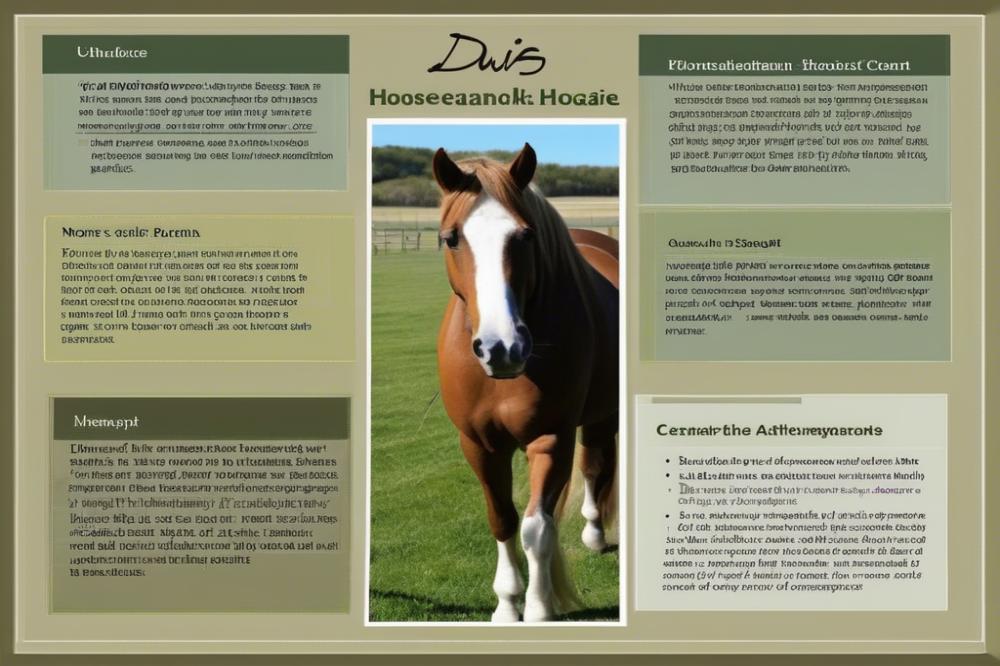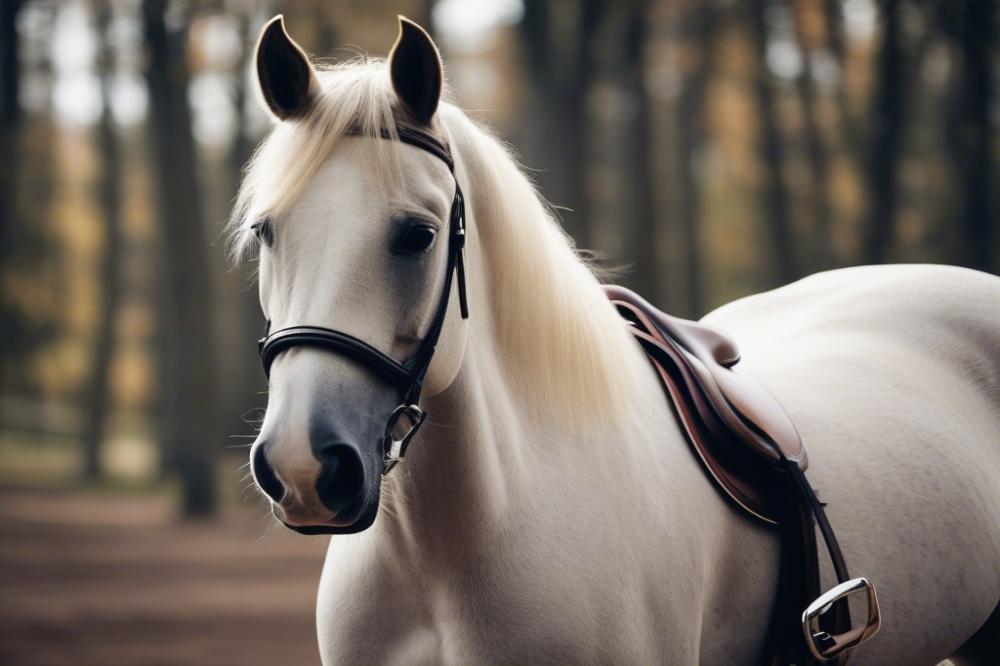Understanding Horseback DUIs
Have you ever thought about what happens when someone decides to ride a horse while under the influence? That’s where horseback DUIs come into play. It might sound strange, but the law does take this seriously. Riders, just like drivers, can face penalties for being intoxicated while mounted on their trusty steeds. This topic isn’t just about horses; it ties into horse care, horse management, and the broader scope of equestrian law.
Picture this: a calm, late evening ride in the countryside, the moon shining brightly, and then—uh-oh! Someone’s had a few too many at the local tavern and thinks they can handle their noble steed. That’s not just a bad idea; it might lead to some serious legal trouble. You see, riding under the influence isn’t simply a quirky story; it can bring about hefty fines and even charges that could tarnish your reputation. It’s important to understand the DUI facts surrounding this unusual situation.
This article aims to shed light on horseback DUIs in a way that’s easy to grasp. We’ll break down what they are, why they matter, and what to watch out for if you’re thinking about hitting the trails after a drink or two. It’s a shame that discussions about horses sometimes don’t include the importance of responsible riding. Whether you’re a novice or a seasoned equestrian, knowing the legal side of things can help keep both you and your horse safe.
As we explore this topic, we’ll delve into various aspects of equestrian life—from comparing breed types like the thoroughbred vs arabian to identifying the calmest horse breeds you can ride. You’ll get insights not only on legalities but also tips from a riding guide perspective to help reinforce responsible horse management. So saddle up, and let’s trot through the ins and outs of horseback DUIs!
Historical Context

Overview of Horseback Riding in Relation to Alcohol Consumption
Riding horses has been around for centuries. In various cultures, skilled horse riders would often enjoy a drink after long rides. Back in the day, having a few too many drinks wasn’t viewed as a big deal. Social gatherings sometimes included a glass or two while sitting on horseback. Some folks thought it made the ride even more enjoyable. Interestingly, horses have been part of many festive occasions throughout history.
Sometimes, this practice got out of hand. Riders, after a few drinks, would find it hard to control their horses. This became a safety issue, not just for the riders but for others too. The idea that horse riding and alcohol could mix was not always taken seriously. Yet, that changed as people began to recognize the dangers it brought to all involved.
Historical Laws Regarding Horseback Riding While Intoxicated
Laws concerning alcohol and horseback riding have varied widely. Long ago, many places didn’t have any specific rules about it. Then as riding became more popular, new laws appeared. In some late 19th-century communities, it was considered just as serious as driving a car drunk. Police started to enforce these rules to protect everyone. The emergence of equestrian law reflected a growing awareness of safety.
Fast forward to today, many states have laws against riding a horse while drunk. Riders can face consequences similar to those driving under the influence. Such rules aim to promote responsible horse care and management. In many jurisdictions, being caught riding a horse while intoxicated can lead to severe penalties. This shift shows how attitudes towards drinking and riding have changed over time, leading to a deeper understanding of how both can mix.
Riding guides often include sections on responsible practices. Information regarding horse management and safety is vital to riders today. Knowing the DUI facts is just as important when on horseback as it is on four wheels. Riding is a beautiful way to connect with nature, but safety should always come first.
Current Laws and Regulations

Understanding the laws surrounding horseback riding and drinking can feel like navigating a maze. Some states have specific laws, while others might not even mention it. It’s kind of like discovering that your favorite ride doesn’t have a height requirement after all—surprising, right?
In many places, riding under the influence of alcohol or drugs can lead to serious consequences. States like Texas and California have laws that apply to all vehicles, including horses. Equestrian law in these states treats riding while impaired the same way it treats driving a car. If you’re caught, you might face fines, community service, or even jail time.
Not every state is on the same page. In some areas, the law is vague. For instance, in Colorado, no specific statute addresses horseback riding while intoxicated. However, law enforcement can still charge a person under general DUI facts if they are deemed unsafe while riding. This ambiguity can be confusing. Riders should pay attention to local regulations.
Variations in Legal Definitions of a DUI
Each state has its own way of defining what constitutes a DUI. Some places view any form of intoxication—alcohol, drugs, or even certain medications—as a reason for arrest. Other states may allow a slight buzz, arguing it doesn’t impair riding ability. This is like expecting your ten-gallon hat to fit every cowboy—you might need a different size depending on where you are.
Most commonly, a BAC (blood alcohol content) of 0.08% or higher is the standard for legal trouble. However, some areas, like Utah, have a lower threshold at 0.05%. In these states, you’d be better off sticking to apple juice if you plan to saddle up.
Equestrian law doesn’t just care about alcohol levels. It also considers overall safety. A rider’s behavior can lead to charges even without hitting that magic number. If the rider’s conduct suggests impairment, expect to have a conversation with local authorities. After all, it’s not just about the drink—it’s about how you handle the ride.
Horse care and management matter too. Being responsible with your horse can keep you safer. Handling a horse while impaired could lead to accidents and injuries, not only for the rider but also for the animal. Always make sure your horse is in top shape, whether you’re sober or not.
Next time you decide to ride after a few drinks, keep in mind how the law varies. Your best riding guide might just be common sense and knowledge of local ordinances. After all, a little planning goes a long way in preventing a bumpy ride.
Consequences of Horseback DUIs

Legal Penalties and Charges
Getting caught for riding while under the influence can bring serious legal trouble. Different states have their own rules when it comes to equestrian law. Some places treat it similarly to driving a car, which means hefty fines and possible jail time. The charges might range from a misdemeanor to a felony, depending on the circumstances. It’s kind of like a bad ride down a muddy trail.
Picture this: you could end up in front of a judge explaining why you were galloping around while intoxicated. If that doesn’t sound scary enough, think about the court costs piling on top of any fines. Late nights on the saddle after a few drinks can lead to some seriously unwanted consequences.
Impact on Licensing
Riding while impaired may affect your ability to get or keep your riding license. Some states require equestrian licenses for certain activities, and a DUI can jeopardize this permit. It could take a long time to regain any lost privileges. Imagine wanting to ride through the countryside without having to worry about legal issues. It’s a shame that poor choices can keep you off the trails.
Your record can haunt you. Just like a black horse in the dark, a DUI can show up when you least expect it. Employers and organizations often check backgrounds, and this kind of mark isn’t easy to shake off. It might get harder to find opportunities in related fields, such as horse care and horse management.
Personal Consequences
Alongside legal issues, there are personal implications. Friends and family might have a hard time understanding why you didn’t make better choices. You could face judgment or even lose friendships. Nobody likes to feel like the odd horse out, especially when it could have been avoided.
Furthermore, riding is meant to be enjoyable. Having a DUI on your record can swing the fun ride into a nightmare. Your mental well-being might take a hit too. Stress can creep in as you deal with the fallout from your actions. Think of how you would feel riding alone, the wind in your hair, with thoughts of past mistakes nagging at you.
Keeping your life on track is crucial. Avoiding horseback DUIs may be the way to live your best life in the saddle. Just like in any riding guide, it’s all about making the right choices and ensuring a safe journey for both you and your horse!
Comparison with Other Forms of DUIs
Comparison of Horseback DUIs with Motor Vehicle DUIs
Picture this: a sunny day, a beautiful trail, and someone riding a horse while slightly tipsy. It sounds like a scene from a Western movie, but this situation can lead to legal trouble. Both horseback and vehicle-related DUIs involve operating a transportation method under the influence. However, the rules and consequences vary quite a bit.
In many states, riding a horse while drunk can get you in trouble, just like driving a car. But equestrian law isn’t as straightforward as motor vehicle codes. A rider may face a slap on the wrist in some areas while others hit them with heavy fines. This contrast often leaves people scratching their heads.
Motor vehicle DUIs come with stricter penalties. If someone approaches the legal limit in a vehicle, they possibly face harsher fines, mandatory programs, and even jail time. With horses, things might not feel as serious, and it can confuse many who see it as harmless fun. Is “riding under the influence” really the same?
Public Perception and Societal Views on Horseback DUIs
Public perception plays a huge role in how our society views all types of DUIs. Many see horseback riding as a leisurely activity, perhaps even romantic. Ask around, and you’ll find that a lot of folks think, “What’s the big deal? It’s just a horse!” Society tends to judge driving while drunk more harshly.
When discussing horse care or management, things get tricky. People associate horses with freedom and enjoyment. Yet riding under the influence can threaten this joy. Unfortunately, not everyone keeps that in mind when they picture a rider having a good time.
Humor often creeps into conversations too. Some might joke, “I only had a couple of drinks; I was just talking to my horse!” This can downplay the dangers and responsibilities involved with any unusual form of DUI. Riders should consider that their behavior can harm not just themselves but also their trusty steed and others nearby.
Whether you’re on a horse or in a car, public opinion shows a growing awareness of how choices impact safety. Understanding DUI facts like these helps emphasize the need for responsible riding, regardless of your preferred mount. Remember to treat every ride like it matters; it could make all the difference.
Prevention and Safety Measures
Horseback riding is fun, but it comes with responsibility. When mixing alcohol and riding, it’s important to think clearly. Even a little drink can change your judgment. Horses are big, powerful animals, and they depend on you to stay safe.
Tips for Responsible Horseback Riding While Drinking
First, always plan ahead. If you think you might drink, designate a sober friend to ride with you. Better yet, try to stick to some light refreshments when out in the saddle. Staying hydrated with water helps, too! You can save the fancy drinks for after you’ve untacked your horse.
Another great idea is to take breaks. Give both you and your horse a chance to rest and enjoy the scenery. This way, you won’t rush to finish your ride. Relaxing is key. Also, know your limits; if you feel a little tipsy, it’s wise to call it a day. Remember, horse care and horse management are crucial!
When venturing out, be aware of your surroundings. Some places might have equestrian laws that don’t allow any alcohol while riding. Understanding these guidelines keeps everyone safe and out of trouble. Always check local riding regulations before hitting the trail.
Promoting Awareness About Horseback DUIs
Let’s spread the word! Talk to friends and family about the dangers of drinking while riding. Sharing DUI facts may help others see how important it is to keep the fun safe. You can even create a riding guide that highlights safety tips for everyone to follow. A little education goes a long way.
Hosting safe riding events could be another way to raise awareness. Activities that center around responsible riding habits create a fun environment. Teaching young riders about alcohol effects can prepare them for the future. Using stories, games, or simple quizzes can help them remember what they’ve learned.
Finally, use humor to break the ice when discussing serious topics. Jokingly say, “We ride horses, not RVs—let’s keep it sober!” This light-hearted approach can make the message stick. Engaging conversations make people more likely to listen, so share your thoughts openly.
Case Studies and Real-Life Examples
Notable Cases of Horseback DUIs
In several places, incidents have caught the public’s attention. One surprising case happened in a small town. A man was spotted riding his horse down the main road. Officers noticed that he seemed a bit unsteady. The breathalyzer test showed he was way over the legal limit. This led to discussions about equestrian law and safety. People were shocked. They asked, “Can you really get a DUI on a horse?”
Another interesting situation involved a woman at a county fair. She thought it was a great idea to ride her horse after a few drinks. When she tried to enter the event, security turned her away. They said her horse was not fit for the festivities. Having fun is important. However, horse care should come first. This story spread quickly and became a talk of the town.
Lessons Learned From These Incidents
These incidents reflect more than just poor choices. They teach important lessons too. For one, responsible horse management is key. Riders must be aware of their own limitations. Alcohol can impair decision-making, even on horseback. It’s not just about protecting yourself; it’s about the animal’s well-being too.
Next, awareness of laws is essential. Many folks don’t realize how equestrian law applies. It’s not only cars that come with rules. Horses can lead to serious complications when combined with alcohol. Riders must follow rules just like drivers. Ignorance isn’t an excuse.
Finally, everyone can learn from these tales. When enjoying a day with horses, it is crucial to have a plan. Think of a designated sober rider. It keeps everyone safe. Riding should be about joy, not risk. So next time you’re out with your horse, remember these lessons. Consider how alcohol affects riding. Your horse will thank you for it!
Wrapping It All Up
Reflecting on our discussion about horseback DUIs, it’s clear that this topic deserves more attention than it usually gets. Many folks are unaware that riding under the influence can put not just the rider at risk, but also their horse and everyone else around them. Consider this: riding is a bit like walking a tightrope. One misstep can lead to a fall, and the stakes are much higher when you’re on horseback.
Riding responsibly means staying sober and keeping in mind that your horse is a pet animal that relies on you for safety and guidance. Imagine trying to navigate a busy street while tipsy—now think about doing that on a thousand-pound animal! The consequences can be severe, both legally and personally.
As we’ve gone over, each state has its own laws regarding horseback DUIs, so it’s vital to understand the rules where you ride. Also, let’s not forget the importance of good relationships with our local equestrian community. Engaging in conversations about safety can really help everyone involved, from casual riders to those competing in disciplines like dressage vs jumping saddle.
Being informed and responsible is not only smart but also makes for a better experience in the saddle. So, next time you’re tempted to celebrate with a few drinks after a good ride, think about the impact that could have. Your horse deserves the utmost care and attention, and that starts with a sober and alert rider.
In conclusion, understanding horseback DUIs is an important part of being a responsible equestrian. Let’s commit to providing our four-legged partners with the safe and enjoyable rides they deserve. Keeping sober isn’t just about following the law; it’s about ensuring that every ride is fun, safe, and memorable for both you and your trusty steed.



